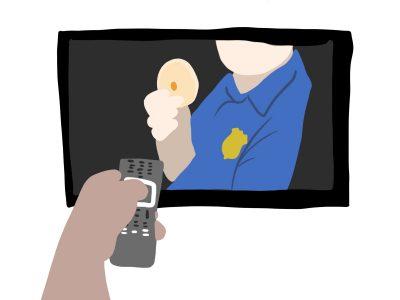When it comes to the stories of Captain Olivia Benson from “Law and Order: Special Victims Unit” or Sergeant Hank Voight from “Chicago P.D.,” we, as the audience, sympathize with the characters who grace our screens. These fictional cops protect their cities from vile crimes, always catching the criminal in the end.
But what happens when the protagonists are the bad guys?
In today’s political climate, many people in the United States don’t trust the police — and for good reason. Countless unarmed men, women and children have been shot dead by people issued a badge and a gun.
To mirror the current tension against the police, cop shows are introducing storylines where the main characters are placed in similar situations, and we’re inclined to support these fictional officers because we’ve accompanied them for five seasons.

In real life, New York’s Internal Affairs Bureau ensures police officers are investigated if the circumstances require it. But in cop shows, these investigators are depicted as power-hungry and jealous characters who purposefully want to railroad our television heroes.
When I read articles and stories about police brutality, I became more aware of how these fictional police officers cross so many lines — lines that were made to keep their power in check and prevent people from being senselessly killed.
In the show “Chicago P.D.,” they introduced a storyline of a detective witnessing his partner shoot an unarmed subject. When he agrees to testify on behalf of the man shot, his fellow officers proceed to harass, threaten and attempt to kill this detective.
This scenario reflects the very real concept of the “blue wall”: an unspoken alliance or brotherhood between police officers that makes them blindly follow the word of another officer.
It should be simple to tell the truth. If the officer did something wrong or used unjust means to make an arrest, then those who witnessed it should be honest about the misconduct. But because of the blue wall and their loyalty to one another, this often isn’t the case.
Other shows such as “Blue Bloods” depict investigators trying to clear the name of an officer who shot an unarmed civilian. Although the episode provides the bureaucratic side of the situation, with the District Attorney’s office and the New York Police Department launching official investigations, the cops still want to believe the officer’s past accommodations indicate their innocence.
Millions of people watch police shows, and although these characters are fictional, they depict some semblance of reality and promote positive feelings toward the policing system. People should be outraged when a police officer on their favorite show shoots an unarmed Black teenager, but because of the way the shows are framed, we get angry at the investigating forces who question the authority of our favorite detective.
When shows decide to air episodes that connect to real events, they must be depicted with accuracy, respect and proper emotion. We shouldn’t feel compelled to root for a corrupt cop. Television needs to depict the tragedies that have occurred in the unlawful killings of George Floyd, Breonna Taylor and other unarmed Black people, instead of making us root for our favorite actors.






















































































































